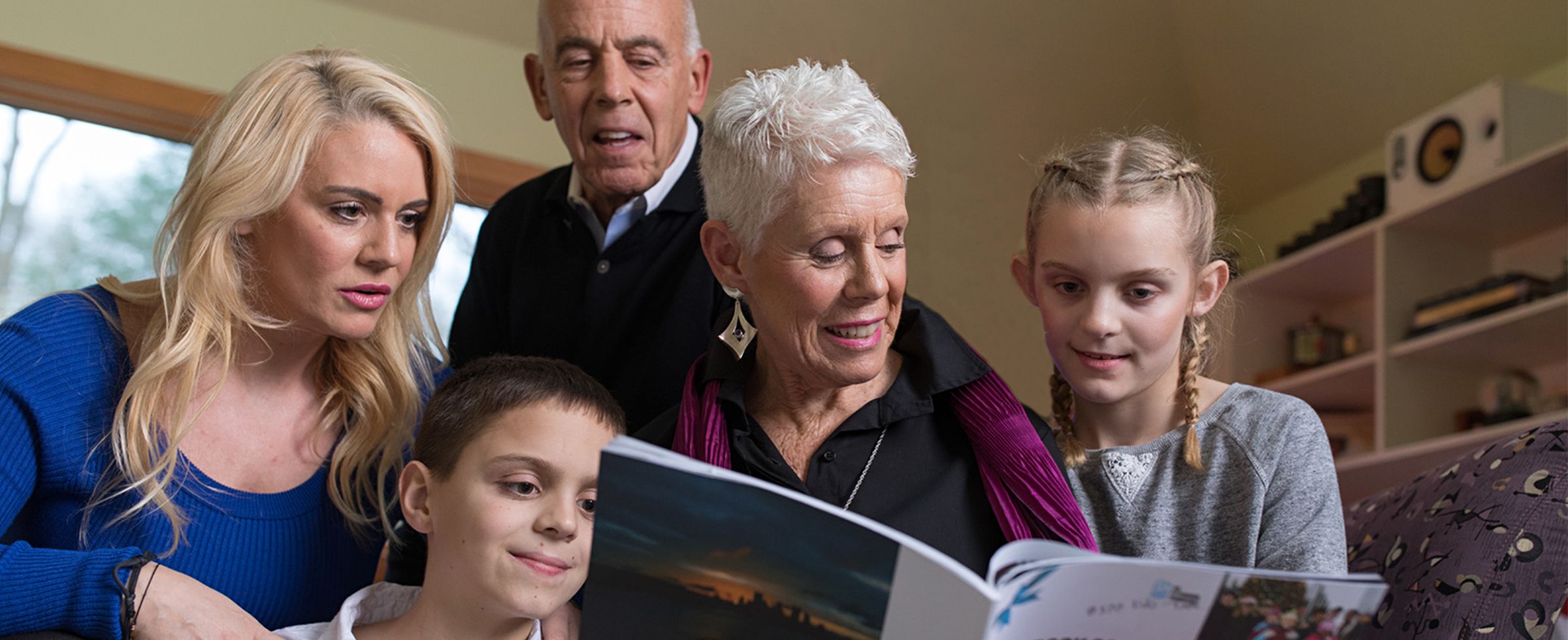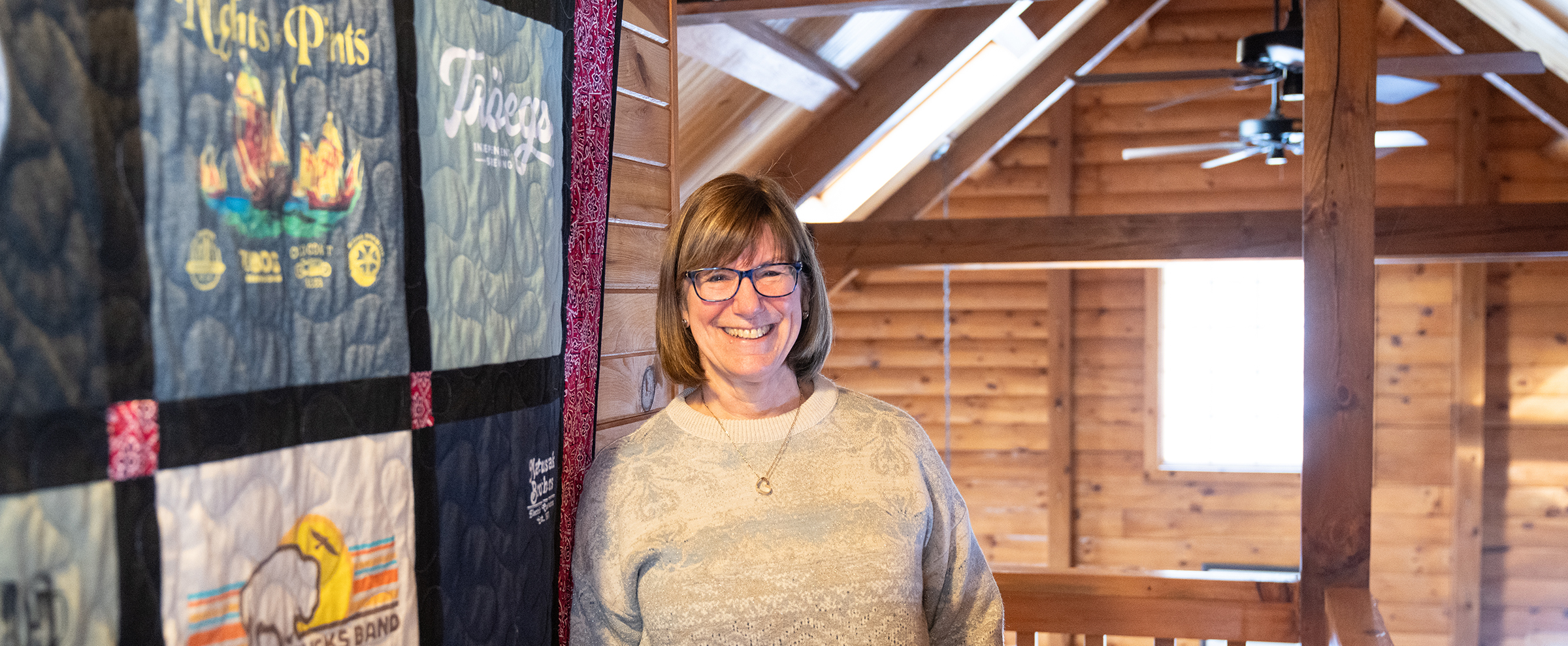Personal Philanthropy

EVEN IN THE BEST OF TIMES, the needs of the most vulnerable far outpace philanthropy’s ability to fill them. But the coronavirus pandemic has turned that long-standing gap into a chasm. Though The Pittsburgh Foundation’s Emergency Action Fund made grants totaling nearly $9 million, more than 150 applications did not meet the criteria for funding. The Foundation’s Development and Donor Services staff began matching donors to nonprofits in need of assistance.
Donors John and Betsy Baun were wintering in Florida when the first news of COVID-19 hit. They immediately wondered who would need help. “The first thing that popped into our minds was to call the Foundation. We knew they would know what the needs were,” says Betsy.
The Bauns’ enthusiasm and close bond shines through an early morning Facetime call. Betsy, large coffee mug in hand, apologizes jokingly for her lack of a haircut. John chimes in that his bald head saves him that worry during quarantine. The harmony in their 43-year marriage is evident not only when they finish each other’s sentences, but in their unified approach to giving. “We like to focus on having the biggest impact. Instead of giving to multiple organizations,” says Betsy, and then John finishes her point: “we decided two would be best.”
The Bauns always want to contribute to where help is needed most. They have a close connection with Lindsay Aroesty, director of donor services and a planned giving specialist at the Foundation. “She knows our hearts,” says John.
Aroesty suggested the couple join donors who were giving to applicants unable to meet the Emergency Action Fund criteria. She worked with the Program staff to help identify nonprofits with missions similar to what the Bauns have supported in their personal philanthropy. The couple has been drawn to programs that help single mothers and survivors of domestic abuse, two populations that have been especially vulnerable to the worst effects of the pandemic. Under quarantine, for example, essentials such as diapers and formula were difficult to buy.
“It can be as simple as that — just one aspect of the work — and something gels with us,” says John. “Our hearts get aligned with a certain need.” The couple decided to give to two nonprofits — The Alignment Chapter, which provides same-day emergency services to single mothers in need, and Nazareth Prep, a career and college preparatory school, which serves at-risk students.
Requests for basic necessities grew from 25 to 180 a day, says Ray Nell Jones, founder of the Alignment Chapter. For struggling single moms, the pandemic presents issues that can seem overwhelming, says Jones, and potentially lead to mental health crises, including suicide. “The Bauns’ grant is saving lives, and we are so thankful to them.”
The Bauns stay closely connected to the community they support through the Foundation’s twice-a-year site tours. “Eye-opening,” says Betsy, adding that it’s important to both of them that they meet people and talk about their lives.
“When we get out to the places where the organizations are working, it makes me more passionate,” John says. He and Betsy welcome the educational opportunity. “These tours expose us to things we didn’t know,” she says, “and often we end up becoming more interested in an issue than we would have thought going in.”
The Bauns say they have been as rewarded by turning Emergency Action Fund applicants into grantees as those who have received support. Many others in the region must also feel fulfilled. Giving from donor-advised funds from March to May for COVID-19 relief, including $824,000 in gifts to the Emergency Action Fund, was $1.74 million (see related story, All of Us — Together).
“Across the country, community foundations are working around the clock to fill the needs of our communities,” says Aroesty. “Pittsburghers are always so generous and willing to help one another, but our donors go way beyond that. Their extraordinary generosity has enabled us to stay on pace.”
The dramatic uptick in giving during the lockdown period extends nationwide and includes the charitable arms of for-profit financial advising firms as much as community foundations. In April, the National Philanthropic Trust reported a 62% increase in giving from DAFs, compared to the same month a year ago. Eileen Heisman, CEO of NPT, an independent public charity providing philanthropic expertise to donors, foundations and financial institutions, said in a Chronicle of Philanthropy podcast that giving by donors in April doubled from the previous year, much of it going to organizations providing basic needs.
Behind those gigantic numbers are donors like the Bauns. John says he is grateful to play a small part in helping organizations improve life prospects for those who need it most.
Original story appeared in the Forum Quarterly Summer 2020.



